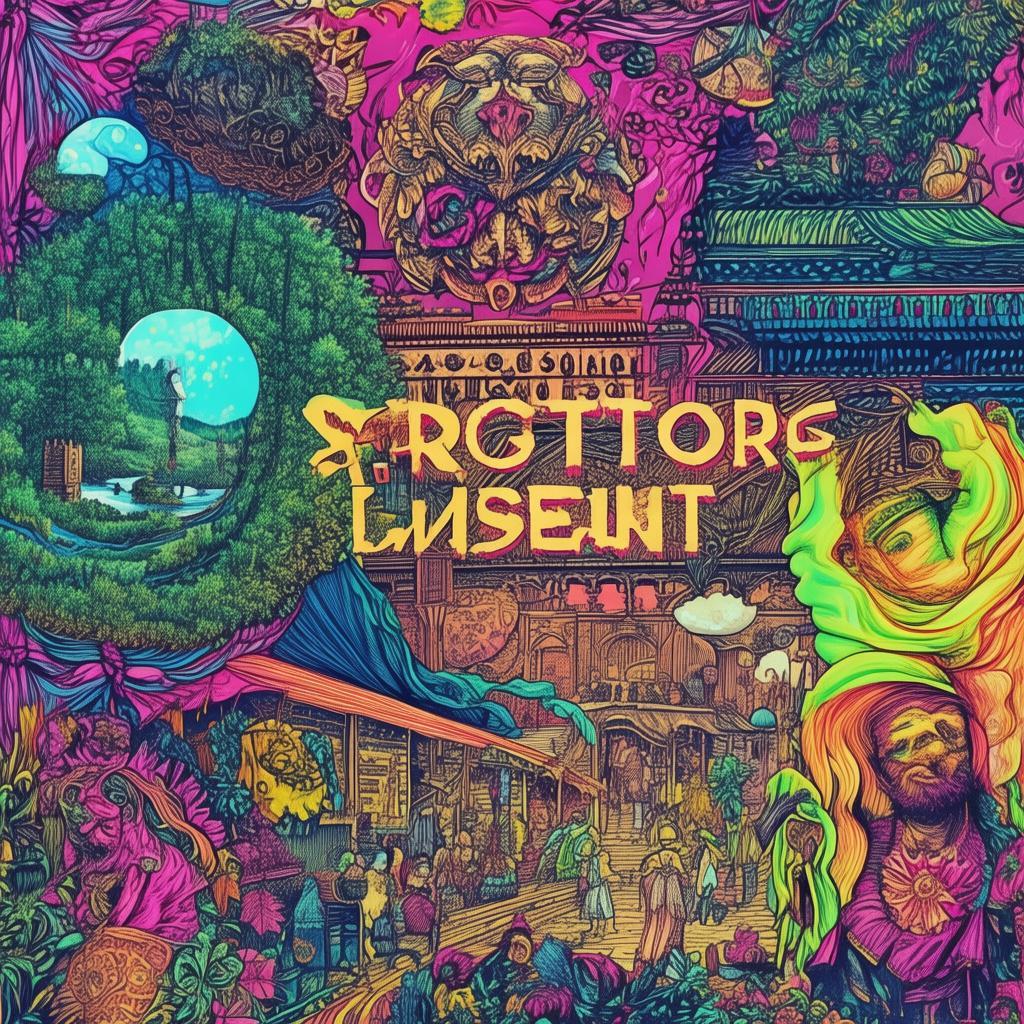Whispers of the Past: A Hunter's Legacy
The sun dipped below the horizon, casting long shadows over the savannah. The air grew cool, and the sounds of the jungle began to hum with the nocturnal symphony of life. In the heart of this untamed land, a young man named Kamba stood at the edge of the clearing, his eyes fixed on the distant horizon. The wind carried the faint echoes of his ancestors' footsteps, a haunting reminder of the hunter's legacy that had been passed down through generations.
Kamba's father, Tumaini, was a revered hunter in their village. His skill with a bow and arrow was unmatched, and he had a deep respect for the animals he pursued. However, Tumaini's respect for life was not shared by all, and the village had become a place of whispered tales of elephants being hunted for their tusks, their lives cut short for the sake of wealth.
Kamba had grown up hearing these stories, and despite his love for the wild animals, he knew the reality of their village's existence. The demand for ivory was high, and the price was right. His father had always said that it was the only way to provide for his family and ensure their survival.
As Kamba watched the sun set, he felt a pang of guilt. He had seen the pain in the eyes of the animals he had hunted with his father, and it had left an indelible mark on his heart. But the village's dependence on the ivory trade was a reality that could not be ignored.
One evening, as the moon began to rise, Kamba's father called him to his side. "Kamba, there is something I must show you," he said, his voice heavy with emotion.
They walked together into the heart of the jungle, where an ancient tree stood, its branches stretching towards the heavens. Tumaini led Kamba to a hidden cave behind the tree, its entrance partially concealed by vines and foliage.
Inside the cave, Kamba saw a collection of old hunting tools and artifacts, each one a testament to the generations of hunters who had come before him. But what caught his eye was a small, weathered book, its pages yellowed with age.
Tumaini opened the book and began to read from it. "This is the book of our ancestors," he said. "It speaks of their respect for life and their connection to the earth. They believed that every creature had a spirit, and that we must live in harmony with all living things."

Kamba listened intently, his heart pounding with the weight of his father's words. He realized that the legacy he had been born into was not just about hunting, but about a deeper connection to the natural world and the responsibility that came with it.
The next morning, Kamba gathered the village elders and shared what he had learned from his father. "We must change our ways," he said. "We cannot continue to hunt the elephants for their tusks. It is not just the animals that suffer, but we, as a people, lose our connection to the earth."
The elders were skeptical at first, but Kamba's passion and the weight of his father's words began to change their minds. They agreed to meet with the other villages to discuss a new way forward.
The following months were filled with challenges. The ivory trade was a lucrative business, and many in the village were reluctant to give it up. But Kamba and the elders persevered, and slowly, the tide began to turn.
Years passed, and the village's relationship with the elephants changed. They no longer hunted them, but instead, they learned to live in harmony with them. The elephants, in turn, seemed to accept their presence, their presence becoming a symbol of peace and coexistence.
Kamba often stood by the same tree where his father had shown him the book, looking out over the savannah. He felt a deep sense of fulfillment, knowing that he had helped to preserve the legacy of his ancestors, not just as hunters, but as stewards of the earth.
One evening, as the sun set, Kamba heard the distant call of an elephant. He turned to see a young calf, its eyes wide with curiosity, approaching him. The calf's mother, a majestic creature with tusks that glistened in the fading light, watched from a distance.
Kamba reached out to the calf, and it nuzzled his hand. In that moment, he felt the true weight of his legacy, not as a hunter, but as a protector of life.
The village had learned to live in balance with the animals, and Kamba's actions had echoed through the years, a testament to the power of change and the enduring spirit of those who choose to protect the earth.
As the years passed, Kamba's story spread far and wide, inspiring others to consider the impact of their actions on the natural world. And so, the legacy of the hunter's heart continued to echo through the years, a powerful reminder that the choice between life and death is not just a personal one, but a collective responsibility.
✨ Original Statement ✨
All articles published on this website (including but not limited to text, images, videos, and other content) are original or authorized for reposting and are protected by relevant laws. Without the explicit written permission of this website, no individual or organization may copy, modify, repost, or use the content for commercial purposes.
If you need to quote or cooperate, please contact this site for authorization. We reserve the right to pursue legal responsibility for any unauthorized use.
Hereby declared.









